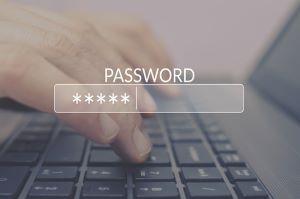630-462-9500
After Hour New Client Telephone Number 630-690-6077
1776 S. Naperville Road, Building B, Suite 202,
Wheaton, IL 60189
How to Protect Electronic Devices from Access by Your Spouse During Divorce
 Unfortunately, divorce can bring out the worst in some people. If you are considering leaving your spouse, or if you have already decided to get divorced, you may have concerns about how he or she will take the breakup. Some spouses become resentful and meddlesome during the divorce process. They may attempt to gain access to their former partner's email accounts, bank information, text messages, and more. You may need to take steps to protect your privacy during a contentious divorce, including:
Unfortunately, divorce can bring out the worst in some people. If you are considering leaving your spouse, or if you have already decided to get divorced, you may have concerns about how he or she will take the breakup. Some spouses become resentful and meddlesome during the divorce process. They may attempt to gain access to their former partner's email accounts, bank information, text messages, and more. You may need to take steps to protect your privacy during a contentious divorce, including:
Change Your Passwords
Many people mistakenly assume that if something is password-protected, no one can access it without the password. However, things become much more complicated when a couple who has shared computers, tablets, and cell phones are divorcing. For example, you may have previously logged on to your email using your spouse's phone because your phone was out of battery. Many devices have settings that automatically remember usernames and passwords for easy future logins. Your spouse may therefore have your email password saved in his or her phone without you even knowing it. The safest bet is to change all of your passwords and security questions to something unique that your spouse will not be able to guess.
Turn Off Location Sharing
A number of phone and computer applications and websites have location-sharing features. You may have turned on location tracking in order to share your location in the past. Double check that your spouse cannot access your whereabouts using features designed to help a person find their lost cell phone, such as “Find My iPhone” or “Android Device Manager.” You should also turn off location-sharing on social media accounts such as Facebook and Twitter.
Use Social Media Cautiously
Most social media accounts have an option for making the account private or only allowing people on your “friends” list to access your posts. However, these privacy settings are easily worked around. For example, perhaps you “unfriended” your spouse on Facebook, but you may still have mutual Facebook friends. Your spouse could simply ask to use his or her friend's phone and view your Facebook posts through that person's account. Even more importantly, anything you post on social media can be used against you during divorce proceedings – regardless of your privacy settings. The best course of action may be to take a break from social media altogether until your divorce is finalized.
Contact a Wheaton Divorce Lawyer
If you are planning to get a divorce, make sure to change your passwords, privacy settings, and take other steps to protect yourself from a nosy spouse. The The Stogsdill Law Firm, P.C. offers solid legal guidance for a wide range of divorce concerns, including issues related to property division, child custody, and more. Call us at 630-462-9500 to schedule a confidential consultation with a DuPage County family law attorney from our firm.
Sources:
https://www.usatoday.com/story/tech/columnist/komando/2014/07/11/divorce-change-online-passwords/12265105/
https://www.techlicious.com/tip/10-tech-issues-to-consider-if-youre-going-through-a-divorce/




















